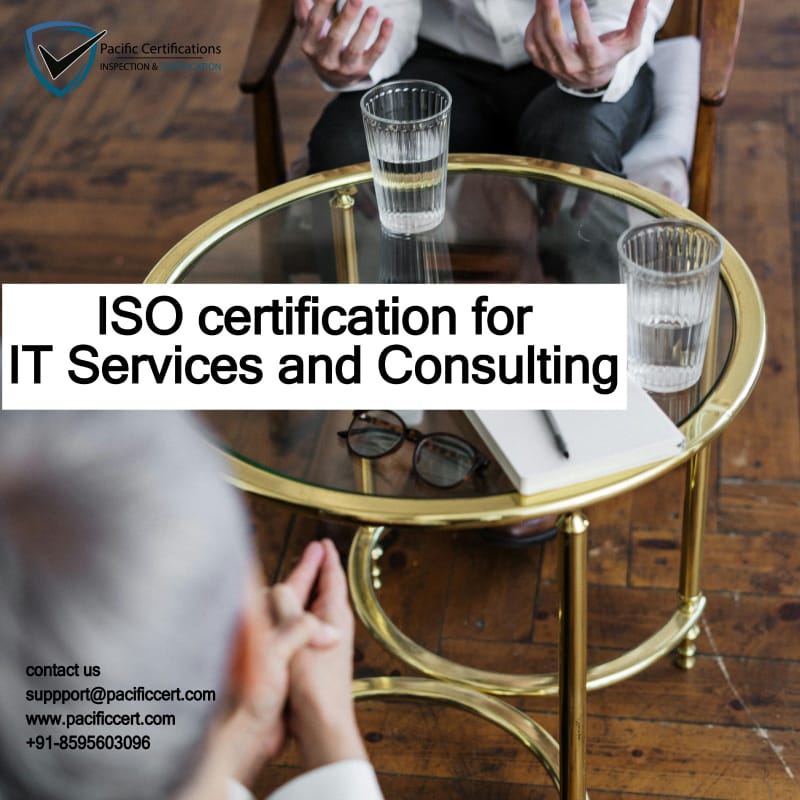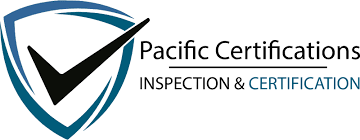ISO Certifications for IT Services and Consulting Services, Requirements and Benefits

Introduction
ISO certifications for IT Services and Consulting companies are essential in demonstrating the quality, safety, and efficiency of their services and processes to clients and stakeholders. These certifications not only help in building trust and credibility but also in aligning IT services with international standards, optimizing operations, and ensuring compliance with legal and regulatory requirements. Here, are key ISO certifications applicable to IT Services and Consulting companies, focusing on their benefits and implementation guidelines.
Key ISO Certifications for IT Services and Consulting Companies
ISO/IEC 27001: Information Security Management
Overview: ISO/IEC 27001 is the leading international standard focused on information security management. It provides a framework for establishing, implementing, maintaining, and continually improving an information security management system (ISMS).
Benefits: Helps protect client and company data from security breaches, enhances resilience to cyber attacks, builds customer trust, and ensures compliance with data protection regulations.
Implementation: Implementing ISO/IEC 27001 involves conducting a risk assessment, defining a security policy, setting objectives and controls, and training employees. It requires ongoing management and monitoring of the ISMS to ensure continuous improvement.
ISO 9001: Quality Management Systems
Overview: ISO 9001 is the international standard for quality management systems (QMS). It provides a framework for improving quality and a process-oriented approach to documenting and reviewing the structure, responsibilities, and procedures required to achieve effective quality management.
Benefits: Enhances customer satisfaction by meeting customer requirements, improves operational efficiency, and increases the ability to innovate and compete in the market.
Implementation: Involves defining quality policies and objectives, documenting processes, implementing QMS processes, and conducting internal audits and continuous improvements.
ISO/IEC 20000-1: Information Technology - Service Management
Overview: This standard specifies requirements for an organization to establish, implement, maintain, and continually improve a service management system (SMS). It is specifically designed for IT service providers to ensure that their ITSM processes align with both business needs and international best practices.
Benefits: Improves the delivery of IT services, enhances customer satisfaction, and ensures a consistent approach to service management.
Implementation: Requires the identification and management of key processes involved in service management, from planning and design to transition, delivery, and improvement of services.
ISO 22301: Business Continuity Management
Overview: This standard provides a framework for planning, establishing, implementing, operating, monitoring, reviewing, maintaining, and continually improving a documented management system to protect against, reduce the likelihood of occurrence, prepare for, respond to, and recover from disruptive incidents when they arise.
Benefits: Ensures continuity and recovery of operations in the event of a disruption, minimizes risk and impact on stakeholders, and enhances resilience and trust.
Implementation: Involves understanding the organization's needs, establishing a management policy, identifying critical functions and their impacts, and implementing controls to manage or mitigate risks.
Click here to find out more applicable standards to your industry
If you need support with ISO certification for your business please contact us at [email protected] or +91-8595603096
Steps for Obtaining ISO Certification
Gap Analysis:
Identify the current state of your IT Services and Consulting company in relation to the chosen ISO standard requirements.
Planning and Preparation:
Develop a project plan to address the gaps identified and prepare your organization for certification.
Documentation:
Document your processes, policies, and procedures as required by the standard.
Implementation:
Apply the documented processes and train your staff on the requirements of the ISO standard.
Internal Audit:
Conduct an internal audit to assess compliance with the standard and address any non-conformities.
Certification Audit:
Choose a reputable certification body accredited by a recognized national accreditation body (e.g., ABIS for Pacific Certifications) to conduct the certification audit.
Continuous Improvement:
After certification, continuously monitor, review, and improve your management system to ensure ongoing compliance with the standard.
For IT Services and Consulting companies, obtaining ISO certification is not just about meeting regulatory requirements; it's a strategic decision that can enhance business performance, improve customer satisfaction, and provide a competitive edge in the market. Each ISO standard has its unique focus and benefits, allowing organizations to address specific aspects of their operation, from quality management to information security and service management. By following the steps outlined above and committing to continuous improvement, companies can achieve certification and realize the full benefits of aligning with international standards.
Requirements & benefits of ISO certification of IT Services and Consulting companies
ISO certification for IT Services and Consulting companies encompasses a range of standards, each designed to standardize processes, enhance efficiency, and ensure quality and security in service delivery. Below, we delve into the requirements and benefits of obtaining ISO certification, focusing on pivotal standards applicable to the IT and consulting sectors.
ISO/IEC 27001: Information Security Management
Requirements:
Risk Assessment: Identify and assess information security risks to the organization’s information assets.
Security Policy: Develop and implement an information security policy that reflects the organization's objectives.
Asset Management: Identify assets and define appropriate protection responsibilities.
Access Control: Limit access to information and information processing facilities to authorized individuals.
Operational Security: Implement secure operations management practices and procedures.
Incident Management: Establish a management process to respond to information security incidents.
Benefits:
Data Protection: Enhances protection of sensitive and confidential data.
Risk Management: Improves the identification and mitigation of information security risks.
Compliance: Facilitates compliance with legal, regulatory, and contractual requirements.
Stakeholder Confidence: Builds trust with clients and stakeholders through demonstrable security measures.
ISO 9001: Quality Management Systems
Requirements:
Customer Focus: Ensure customer requirements are understood and met.
Leadership: Establish unity of purpose and direction.
Engagement of People: Involve employees at all levels for effective implementation.
Process Approach: Manage activities as processes and processes as a system.
Continuous Improvement: Continually improve the effectiveness of the QMS.
Benefits:
Customer Satisfaction: Increases customer satisfaction by meeting customer requirements.
Operational Efficiency: Enhances process efficiency and reduces waste.
Market Competitiveness: Improves competitive edge and market positioning.
Flexibility: Adapts to changes in the market and technology.
ISO/IEC 20000-1: Information Technology - Service Management
Requirements:
Service Management System (SMS): Plan, establish, implement, operate, monitor, review, maintain, and improve an SMS.
Design and Transition of New or Changed Services: Manage changes effectively and efficiently.
Service Delivery Processes: Ensure consistent and reliable service delivery.
Relationship Management: Manage relationships with customers and suppliers.
Benefits:
Service Quality: Enhances the quality of IT services provided to customers.
Alignment with Business Goals: Ensures IT services align with the business’s needs and objectives.
Efficient Resource Use: Improves the utilization of resources and capabilities.
Consistent and Predictable Service: Provides a framework for consistent and predictable service delivery.
Conclusion
For IT Services and Consulting companies, ISO certification is more than a compliance requirement; it's a strategic asset. It can enhance operational efficiency, reduce risks, increase customer satisfaction, and ultimately, provide a competitive advantage in the market. The process of obtaining and maintaining ISO certification necessitates a commitment to continuous improvement and a culture of excellence throughout the organization.
Contact Us
Pacific Certifications is accredited by ABIS, in case you need support with ISO certification for your IT Services and Consulting business, please contact us at [email protected] or +91-8595603096.
Read more: Pacific Blogs

